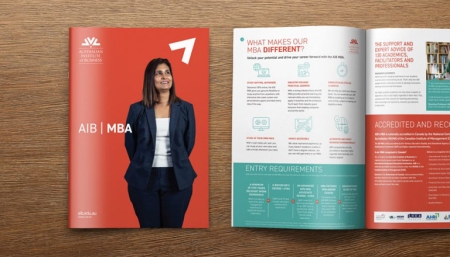Why you should make professional development a priority?

The term ‘professional development’ is regularly heard within the workplace, but little people are being proactive and making it a priority. The act of undertaking additional training or an activity to further your knowledge is imperative throughout your career. In an ever-changing and fast paced business environment, keeping your skills and knowledge up to date will only help you progress throughout your career. This article aims to explain the reasons why you should prioritise professional development and should be of use to any professional – no matter what stage you are at in your career.
What does ‘professional development’ actually mean?
The Macmillan Dictionary defines professional development as ‘the process of obtaining the skills, qualifications, and experience that allow you to make progress in your career’. This can range from a single conference or workshop, to a complete academic course spanning over a period of months or years. Any of the activities undertaken to grow your knowledge, maintain current skills, provide insights into future trends and give you the opportunity to progress in your career can be considered as professional development activities.
Maintaining current knowledge
The first reason why professional development is important is to be able to maintain the current skills and knowledge that you have acquired. Although you may have completed an undergraduate degree, or perhaps some industry based training before you began working for your current organisation – this does not mean that the content is valid in present day business. Of course there will be value in the content you have previously learnt, but undertaking activities to refresh your memory, or build upon what you have previously learnt is essential to keeping up-to-date with current business needs. Ensuring your knowledge is relevant and up-to-date allows you to continue to deliver a professional service. It is also important that your capabilities are in line with the current standards of others in the same field – this ensures you do not fall behind and do not miss out on any key opportunities.
Awareness of trends
When undertaking professional development activities it is important to pay attention to industry trends. Both technology and society are continually heading in new directions which results in new developments and emerging patterns. Being aware of these developments not only puts you in the forefront of your work, but also helps to recognise opportunities when they are presented. In today’s fast paced business world, the ability to forecast and plan for trends is a very useful skill. However, the only way you will learn of these trends is by stepping outside of your workplace and exposing yourself to new ideas.
Knowledge is power
We should never forget the fact that knowledge is power; the more you know, the more you are able to achieve. Bestselling author Brian Tracy adds that ‘knowledge is the primary source of value in our world today and your ability to expand your mind and devote yourself to lifelong learning is the key to breaking any success barriers that may be in front of you’. However, you must be aware that acquiring the knowledge itself is not the only step; the key to growth is applying what you have learnt into your job. Having this knowledge also helps you continue to make meaningful contributions to your team as you can work more efficiently and are well informed.
Increases future employability
In today’s tough job market, furthering your education and enhancing your current skills can help you to stand out among other job seekers. Although you may not currently be looking for a new job, you cannot predict the future with 100% confidence. It is important to always be thinking ahead and consider whether any activities can be of benefit to your future self. You can never be certain of your career path, for example after undertaking professional development activities such as a Masters qualification, you may graduate with a new outlook on the business world and wish to take your career in a different direction. Possessing a large amount of qualifications can only be of benefit during the recruitment process of a new position. A history of professional development showcases your knowledge, but also reflects your character. Actively seeing out opportunities to better yourself demonstrates your proactive work ethic, your commitment to maintaining your skills, and your motivation to stay at the top of your field.
It’s a career long obligation
The reality is, partaking in professional development activities is a career long obligation. If you are not open to learning new skills, you cannot expect to progress in your career. There will be occasions where your organisation will require you to undertake educational workshops, or attend conferences, but also remember to actively seek out your own opportunities. Henry Ford once said ‘Anyone who stops learning is old, whether at twenty or eighty. Anyone who keeps learning stays young’. This is an important quote to take on board, regardless of your age or the stage that you are at in your career. Learning must be made a priority.
What do you think?
Overall, I believe that professional development activities can do nothing but benefit your career. You must always be open to learning new things and growing your capabilities. I am interested to hear your views – do you value professional development as much as I do? Can you share some examples of when it has helped you? Please feel free to comment your opinion below and join in the discussion.
If you are considering undertaking some professional development, why not consider the AIB work-applied MBA. Whether you are looking to grow or start a business, climb the corporate ladder, increase your salary, change your career path, maintain your current position or just get qualified – the MBA will be of benefit to you.
This article was written by Laura Hutton on behalf of the Australian Institute of Business. All opinions are that of the writer and do not necessarily reflect the opinion of AIB. The following sources have been used to prepare this article: Continuing Professional Development; PD How2; and the MacMillan Dictionary.





